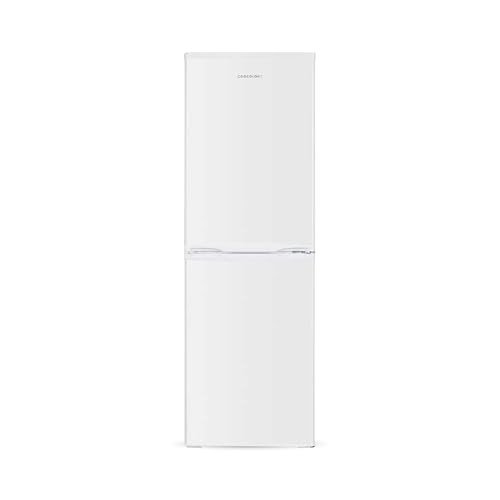fridge-uk8039
fridge-uk8039
Fridges And Freezers Tips That Can Change Your Life

Understanding Fridges and Freezers: The Essential Kitchen Appliances
Fridges and freezers are 2 of the most essential home appliances in contemporary cooking areas. These devices serve a crucial function in food preservation and waste decrease by ensuring that perishable products remain fresh and safe for consumption. This article explores the numerous kinds of fridges and freezers, their functionalities, and important considerations for selection and maintenance.
Types of Refrigerators
The market offers a variety of refrigerator types, each developed to fulfill different customer needs. Below is a list of the most common kinds of fridges:
-
Top-Freezer Refrigerators
- Most common type.
- Freezer compartment is located above the refrigerator area.
- Typically more economical and energy-efficient.
-
Bottom-Freezer Refrigerators
- Freezer lies at the bottom.
- Permits easier access to fresh items at eye level.
- Typically features pull-out drawers for better organization.
-
Side-by-Side Refrigerators
- Refrigerator and freezer areas are surrounding.
- Ideal for narrow kitchens and enables simple access to both compartments.
- Typically comes with water and ice dispensers.
-
French Door Refrigerators
- Combines a bottom freezer with double doors at the top.
- Deals adequate storage and elegant designs.
- Frequently consists of features like temperature-controlled drawers.
-
Compact Refrigerators
- Smaller size perfect for limited areas.
- Commonly utilized in dormitory, studio apartments, or as secondary fridges.
Table 1: Comparison of Refrigerator Types
| Type | Advantages | Downsides | Normal Size |
|---|---|---|---|
| Top-Freezer | Budget-friendly, energy-efficient | Less convenient access to the freezer | 14-30 cu. ft. |
| Bottom-Freezer | Much easier access to fresh food | Freezer can be harder to organize | 19-30 cu. ft. |
| Side-by-Side | Easy gain access to, water/ice dispenser | Narrow vs. storage space | 22-30 cu. ft. |
| French Door | Trendy, spacious, organized | More expensive | 20-30+ cu. ft. |
| Compact | Space-saving, portable | Limited storage | 1.7-5.5 cu. ft. |
Types of Freezers
Freezers are a similarly crucial home appliance for food preservation. They come in various styles designed to fit various household requirements. Consider the following types:
-
Upright Freezers
- Run like a basic refrigerator with vertical storage.
- Easier to arrange with shelves and compartments.
-
Chest Freezers
- Large, horizontal design generally providing more storage area.
- Maintains temperature levels better during power failures.
- More energy-efficient than upright models.
-
Portable Freezers
- Compact units ideal for outdoor activities or little areas.
- Typically utilized for camping trips or as short-term storage.
Table 2: Comparison of Freezer Types
| Type | Benefits | Downsides | Common Size |
|---|---|---|---|
| Upright Freezer | Simpler to arrange | Less energy-efficient, more flooring space | 5-20 cu. ft. |
| Chest Freezer | Holds more items, energy-efficient | Harder to arrange | 5-25 cu. ft. |
| Portable Freezer | Compact and flexible | Limited storage capability | 1-10 cu. ft. |
Key Features to Consider
When choosing a fridge or freezer, consumers must remember several functions that can boost performance:
- Energy Efficiency: Look for models with the ENERGY STAR certification to minimize electrical energy bills.
- Storage Capacity: Evaluate storage needs based upon household size and eating routines.
- Temperature Control: Some home appliances offer digital controls for precise temperature settings.
- Adjustable Shelving: Customizable shelving enables for optimum company.
- Water and Ice Dispenser: Offers convenience but can take up valuable space inside.
- Noise Level: Sound ratings can influence convenience, specifically in open-concept homes.
Benefits and drawbacks of Having a Fridge and Freezer
While fridges and freezers are vital innovations, they likewise have particular benefits and disadvantages:
| Pros | Cons |
|---|---|
| Maintain food life expectancy and decrease waste | Need routine maintenance |
| Allow bulk buying and meal prepping | Can be pricey to purchase and run |
| Deal benefit and fast access to food | Inhabit substantial kitchen space |
Upkeep Tips
To guarantee longevity and optimum efficiency of fridges and freezers, consider the following upkeep pointers:
- Regular Cleaning: Clean the exterior and interior regularly to prevent accumulation of dirt and bacteria.
- Examine Seals: Inspect door seals frequently for leaks to maintain performance.
- Temperature level Settings: Keep the fridge at 34-38 ° F and the freezer at 0 ° F for optimum food conservation.
- Thaw as Needed: Chest freezers ought to be defrosted regularly to keep performance.
- Clear Air Vents: Ensure that airflow isn’t obstructed to improve energy efficiency.
FAQs About Fridges and Freezers
Q1: How long can food be kept in a freezer?A: Most foods can be kept in a freezer for several months. Meats and poultry frequently last 4-12 months, while veggies can last as much as 8-12 months.
Q2: How often must I clean my fridge and freezer?A: It is a good idea to clean your fridge and freezer every 3 to 6 months, or as required when spills occur. Q3: Can I put hot food directly in the fridge?A: It is recommended to cool hot food to space temperature before placing it in the fridge to avoid
raising the temperature inside the device. Q4: Why is my fridge freezer uk Sale running constantly?A: This could be due to a malfunctioning thermostat, clogged up coils, or door seals that aren’t working effectively. Fridges and freezers are important
assets to modern families, supplying essential services for food storage and conservation.
Understanding the different types, functions, and maintenance requirements can assist consumers select the ideal devices for their needs and optimize their functionality. Embracing energy-efficient designs not just supports sustainable practices but likewise contributes to significant savings on energy costs, making informed choices more crucial than ever.

